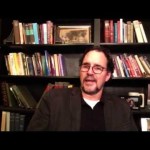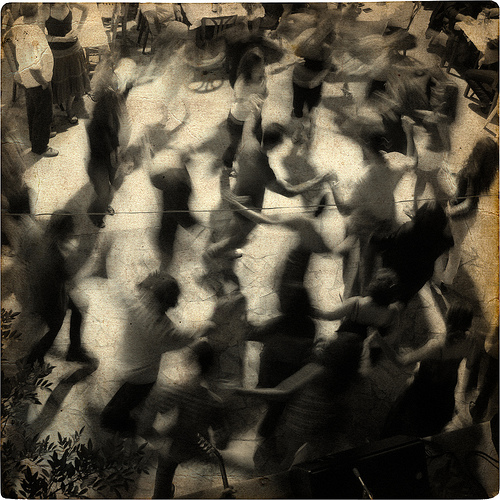We run our website the way we wished the whole internet worked: we provide high quality original content with no ads. We are funded solely by your direct support. Please consider supporting this project.
Participating in the Divine Nature (Love)
When God created the world, it obviously wasn’t to finally have someone to love, for God already had this, within himself. Rather God created the world to express the love he is and invite others in on this love.
This purpose is most beautifully expressed in Jesus’ prayer in John 17. Jesus prays to his Father that all of his disciples would “be one … just as you are in me and I am in you” (vs 21). Jesus wants his followers to live in some sense inside one another—just as he and the Father live inside each other.
He then says that he’s given his disciples the same “glory” the Father gave him. He did this “so that they may be one as we are one” (vs 22). What God is aiming at, clearly, is a community of people who reflect and participate in his “glory,” which is nothing other than the radiance of his own perfect, eternal, loving, communal, oneness.
As if this wasn’t beautiful enough, Jesus continues by saying that just as the Father is in him, so he prays he’ll be in his disciples “so that they may be brought to complete unity.” This is how “the world” is to become convinced that Jesus was sent by the Father (vs. 21-23). Then Jesus ends his magnificent prayer by proclaiming that he will continue to make the Father’s name (or character) known “in order that the love you have for me may be in them and that I myself may be in them” (vs 26).
Stop and read that last sentence again.
The very same love the Father has for the Son—a love, Jesus says, that goes back before creation (vs 24)—is to dwell in Jesus’ disciples, for Jesus himself dwells in his disciples! This blows me away! God’s love for us isn’t a secondary, derivative, watered down kind of love. It’s the very same eternal love the Father has for the Son. It’s the very same love that God’s eternally is.
What I wrote in the post yesterday about God now applies to us. God’s love for us isn’t merely a verb God does: It’s the noun he is. When God loves us, he’s simply being himself toward us. With God there’s no distinction between the love he gives and the love he is.
If we catch even the slightest glimmer of this magnificent truth, we can’t help but be overwhelmed by its beauty.
So, humans were created out of God’s perfect love—in his “image” and “likeness”—for the purpose of participating in and expressing God’s perfect love (Gen 1:26-27). We were created to dance with and in the triune God. We were created for a relationship with God and each other that is nothing less than a participation in, and reflection of, the triune relationship that God eternally is. This is how we “participate in the divine nature” (2 Peter 1:4).
Category: General
Tags: God, God is Love, Jesus, Love, Love Your Neighbor, The Holy Spirit, Trinity
Topics: Following Jesus, Trinity
Related Reading

“Whatever it means, it cannot mean that.”
pure9 via Compfight Roger Olson wrote a great article a couple of days ago entitled Why (High) Calvinism Is Impossible. He points out that there is no way to understand God as “good” while also believing in double predestination. The idea that God predestines some to heaven and a vast majority to hell for his “glory”…

Is speaking in tongues the initial evidence of receiving the baptism of the Holy Spirit?
Pentecostals have traditionally taught that speaking in tongues is evidence that a person is filled with the Holy Spirit. Those who defend this position do so primarily on the basis of a pattern they discern in Acts. They note that when the disciples were first baptized in the Spirit on the day of Pentecost, “all…

Loving a Twilight Zone God?
David D. Flowers posted this insightful reflection over on his blog about an episode of The Twilight Zone and what it says about some pop views of God. Can we really love a God that exercises this kind of random control just because he can? We can certainly fear a God like this, but can…

Sermon: Diaper Power
In this short clip from Greg Boyd’s Sermon Diaper Power, he introduces the theme of the sermon where talks about how the poverty of the manger exemplified the power of God. In this sermon, Greg shows that God really is like the baby swaddled in clothes in the manger. The kind of power that God…

Sermon: Letter to Henry
We usually share a short clip from Greg’s sermons here, but we decided that a clip just won’t do this week. This last weekend Greg preached about the life and death of Henry and what it does and does not say about God. You can listen to the sermon and download other resources over at…

Penal Substitution View of Atonement: Did God the Father Just Need to Vent?
In this video blog, Greg outlines the penal substitution view of atonement which says that the Father poured out his wrath on Jesus instead of us so that we could be forgiven. This view is very common and you might even be nodding your head in agreement with that description. However, this view creates some…

